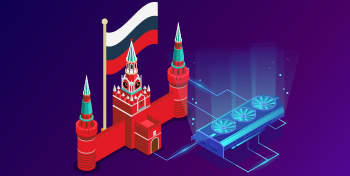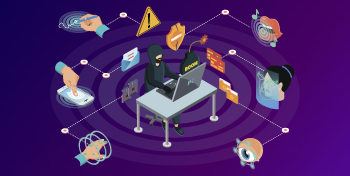Everyone knows that money is a way of payment, through which we can purchase a product, goods, services, etc. But many do not understand the importance of cryptocurrencies in this evolution of finance.
A revolutionary solution that changes people’s thinking
Throughout history, money has been a tool for coordinating financial relationships between people. From seashells to banknotes, the best money is the one that retains value in time and space.
Good money must have specific qualities, otherwise it will have no value. Let’s not delve into the history of money, but consider the financial instruments that are widely used in the world today.
- Gold
Gold is just an element of the periodic table, but for thousands of years it has been used as money and a means of saving. Gold has many of the qualities that people look for in money: scarcity, interchangeability, divisibility, and a number of other features.
However, it is also quite burdensome to safely conduct transactions, transport and store, which has led to its successor, the fiat currency.
- Fiats
Fiat is money issued by the government, and it has value only in connection with a government decree. Fiat, for example, like the US dollar, was once backed by gold, but since 1971 it has only been backed by the legitimacy of the government. Now fiat (money) is a government tool with which a select few can determine how much money exists, how much they can print, who it goes to, and how much to confiscate from others. This power imbalance has led to significant wealth inequality and, at times, currency failures.
- Cryptocurrency (Bitcoin)
Cryptocurrencies, in particular Bitcoin , are just the latest version of the 6,000-year history of money. Bitcoin is a digital money that works without the need of government or banks. In essence, this is gold that can be transported over the Internet in a direct peer-to-peer mode. It is a decentralized parallel financial network with no access rights that can be used by anyone with a scarce, withdrawal-resistant token that no one, including governments, can control or manipulate.
- What is a cryptocurrency?
Cryptocurrencies are digital currencies that rely on math and cryptography for their security and usability, rather than a centralized third party such as government, bank, Visa, Paypal, etc. They are a breakthrough in coordinating people’s trust. They eliminate the need for an intermediary in any transaction.
Modern banking was created because people couldn’t safely make transactions with someone they didn’t know / trust. To solve this problem, banks inserted themselves in the middle of the transaction to ensure that the money actually got to where it needed to be.
But with Bitcoin’s ingenious design, trust is no longer required. Complete strangers can make transactions, and still be sure that the transaction will be executed as intended, regardless of their age, country, government, or anything else.
Crypto transactions are distributed, verified, and cross-checked for accuracy by a decentralized global set of participants that protect the blockchain. The blockchain is simply a decentralized ledger (system), in which everything is tracked and transparent on the network.
Literally, a blockchain is a series of time-stamped data blocks created and verified by the Bitcoin P2P network of computers. The timestamp allows you to audit transactions and provides proof of whether the transaction was completed and when. The P2P network and lack of centralized management eliminates the need to trust anyone to complete the transaction. Cryptography provides tremendous security for every transaction, making them incorruptible, yet easily verifiable by others.
Bitcoin Properties
From the very beginning, the Bitcoin White Paper states that the goal of Bitcoin was to eliminate many of the problems and inefficiencies created by the traditional financial market: intermediaries, unnecessary fees, settlement time of several days, corruption, and the inevitability of fraudulent transactions. How does it do it? Showing these qualities:
- Decentralized
There is no central organization that can censor transactions, charge fees, change existing rules, or be subject to attacks and extortion by the government or unscrupulous organizations. There are no central banks or the Federal Reserve that can manipulate the money supply. There is no board of directors that can decide to raise the commission. There is no CEO to sue. Bitcoin is P2P and open source software like BitTorrent. It spreads like a mass movement or a virus.
Delving into the specifics of blockchain decentralization, we learn that a decentralized blockchain is defined by the ability of the weakest node in the network to check the rules of the system. If your favorite blockchain is high-performance, but requires incredibly expensive or authorized software / hardware to verify the chain, then only a select few people will be able to confirm the validity of the data. This significantly prevents the blockchain from being accepted by the masses around the world.
Fortunately, Bitcoin is open source and can be run on an ordinary everyday laptop. This is about 300 gigabytes, and it can take several hours to synchronize.
- 21 million limited offer
Bitcoin is truly revolutionary because it is the world’s first case of digital scarcity. At one time, there will only be 21 million Bitcoins, of which ~ 90% have already been issued. There has never been an asset, especially a digital one, with a provable finite rarity.
- Resistance to censorship
No one can dictate to you what to do with your money. Bitcoin is apolitical. If you want to make a transaction and have paid a small commission to the miner, the network will process it.
- Immutable (or irreversible)
This is critical for any system in which a value is passed. Users want to be sure that when they send $10, that transaction will be processed and their recipient will receive that money. A factor that may be an obstacle to this may be the cancellation of the transaction by someone who is in power.
Meanwhile, Bitcoin’s cryptography (public and private key system) ensures that only the owner of a particular “key” can send funds associated with that address, providing sufficient funds for the transaction and security so that no one else can spend your crypto assets.
- It is impossible to change the digital deficit
This is a monumental breakthrough provided by the BitcoinProof of Work model, which created digital scarcity for the first time. Before Bitcoin, everything on the Internet (images, files, documents, etc.) could be duplicated for free. If you received an image and then sent it to a friend, you did not send the image itself, but simply sent him a copy of the original. You also have a version of the picture. For this reason, the concept of digital money did not work without a central intermediary, but fortunately, Bitcoin solved this dilemma, known as the “double spending problem”.
- Transparency
Only 21 million BTC will be created based on a predictable and known delivery schedule that is always publicly verifiable and audited. No government can change that. This is paramount to the value of Bitcoin. A fixed money supply that everyone knows about in advance is much more egalitarian than an infinite money supply created behind closed doors by a small group. With Bitcoin, no government can devalue your wealth through inflation, quantitative easing, or any of the other economic experiments fashionable these days.
- Without permission (anyone can use)
Anyone can exchange crypto assets with anyone, anywhere, anytime. For the first time in history, the Bitcoin protocol allows users to send money in the way we currently send data packets (emails, web links, images, etc.). This is the digital equivalent of being able to directly hand over a $5 bill to a friend in Europe or elsewhere. No intermediaries. No hidden transaction processing fees. No exchange rates. No company collects data about your transactions to sell this information to advertisers.
Most of us are forced to make transactions and make savings in a certain currency, depending on where we live. For many, this is difficult, absolutely not their fault, but the fault of the government regime in which they live. Imagine if the people of Venezuela or Zimbabwe had a choice, would they use these currencies or would they use an alternative? Bitcoin at least gives them that choice.
- Incognito
Bitcoin is not completely anonymous, as many believe. In fact, as explained earlier, the Bitcoin blockchain registry makes all transactions publicly available to everyone. However, the accounts and their transactions are not directly linked to any personal information, such as a social security number or home address.
Each user has a BTC wallet with a wallet address containing a long string of letters and numbers. While this provides some level of privacy, in many cases it is possible to trace the wallet address to a real individual and bank account, based on user activity or exchange data hacking.
- Global
Bitcoin does not belong to any country, and it is not limited to the physical borders of any country.
- Fast
Bitcoin allows anyone to send and receive payments 24/7/365 with settlements in minutes, not days. No bank hours, no 9-5 stock market hours, or holidays. Users can make transactions on their own schedule.
- Cheap
Sending BTC to anyone in the world is relatively cheap, especially when crossing national borders. Current fees for fiat transfers vary from 7% to 20% depending on the participating country. Bitcoin transactions are typically less than $3, which makes them much cheaper to pay for medium to large amounts.
In fact, in January 2020, an undisclosed address transferred $1.1 billion worth of Bitcoin for just $ 80, or 0.00000007% fee.
- Divideable
Bitcoins are divided up to 8 decimal places (the smallest increment known as satoshi). This means that you don’t need to own or spend entire BTC coins. This allows users to freely send any amount they want, and even spend Bitcoins on very small purchases when the price is very high in dollar terms.
Most of the money is already digital, but many are hindered by an outdated system and a lot of intermediaries looking for benefits. Again, sending Bitcoins is the digital equivalent of sending cash directly to the recipient without sending it through different banks, payment systems, clearing houses, and state borders.
Cryptocurrencies are an evolution of money that cannot be stopped.


